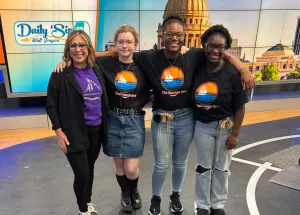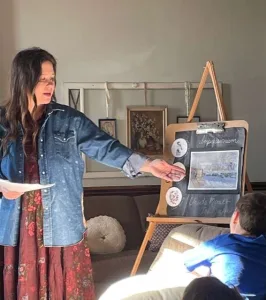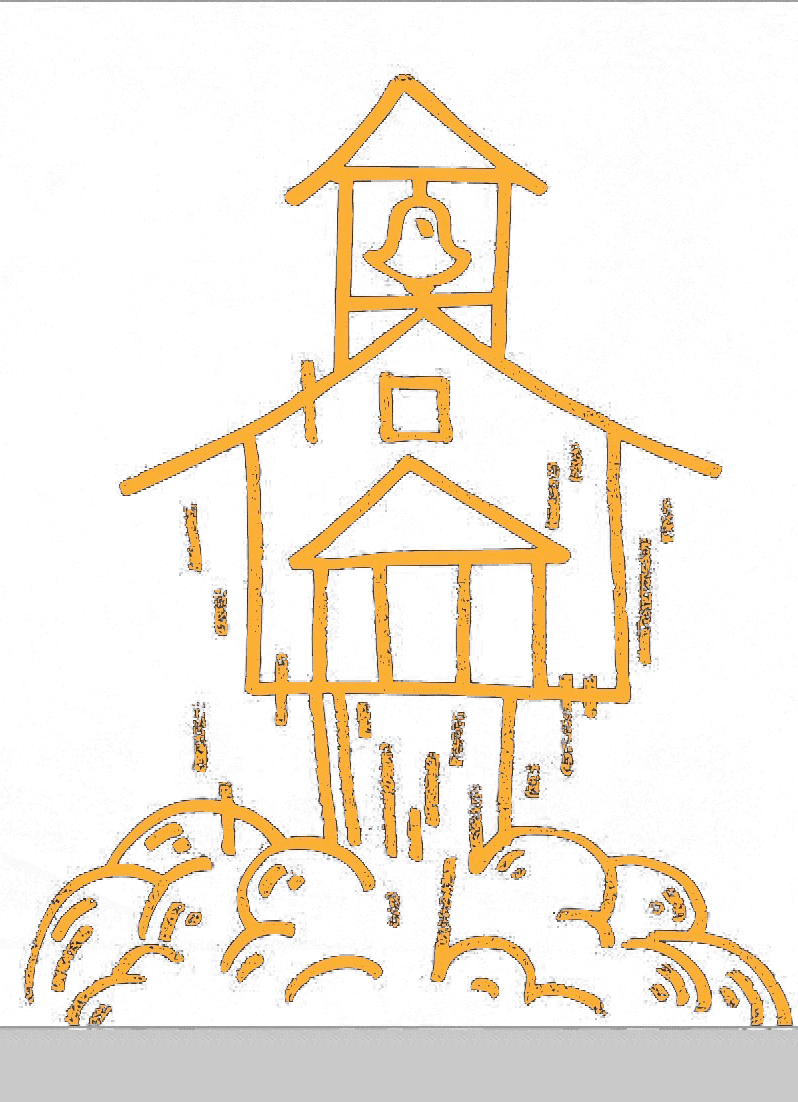It’s September, and across the country, whether in a brick-and-mortar school or in an unconventional learning environment, classes are back in full swing! As many are celebrating the start of a new academic year, quite a number of homeschooling families are preparing their seniors for graduation and life beyond high school. In fact, according to a recent report by Mastermind Behavior Services, approximately 74% of homeschooled students attend college after graduation, compared to 44% of their traditionally educated counterparts. If you are a parent and your student’s next step is college, or if you run a microschool or homeschooling program that serves high schoolers, please read on, as I have a number of helpful tips and will also bust a few myths as you embark on this leg of the educational journey.
- Start early! As with pretty much everything, preparation is key! Last year, my son Samuel and I started this process LATE! While he is now living his best life in college studying aviation, we quickly realized that more opportunities would have been available to him had we started earlier. The earlier you and your student curate a list of potential schools based on their life goals, the better, as that early start allows you to stay on top of application and scholarship deadlines. However, do not be discouraged if you get in the game late. As my son will attest, you can still get on the field, play, and win!
- Work on your college essay. A well-crafted college essay opens doors not only to admissions but to scholarships, and now is the time to write that winning essay. The essay is where students share their individual stories and what makes them unique; where they share experiences and understanding that goes beyond what’s reflected on their transcript; where they identify the strengths they bring to the table that will make a lasting impact on that school’s community. Below are the 2025–26 Common App essay prompts taken directly from the Common App website, the platform most high schoolers use to apply to US colleges and universities:
- Some students have a background, identity, interest, or talent that is so meaningful they believe their application would be incomplete without it. If this sounds like you, then please share your story.
- The lessons we take from obstacles we encounter can be fundamental to later success. Recount a time when you faced a challenge, setback, or failure. How did it affect you, and what did you learn from the experience?
- Reflect on a time when you questioned or challenged a belief or idea. What prompted your thinking? What was the outcome?
- Reflect on something that someone has done for you that has made you happy or thankful in a surprising way. How has this gratitude affected or motivated you?
- Discuss an accomplishment, event, or realization that sparked a period of personal growth and a new understanding of yourself or others.
- Describe a topic, idea, or concept you find so engaging that it makes you lose all track of time. Why does it captivate you? What or who do you turn to when you want to learn more?
- Share an essay on any topic of your choice. It can be one you’ve already written, one that responds to a different prompt, or one of your own design.
As your student prepares to write, I recommend you both visit each college website, learn about their culture and their mission, and consider incorporating some of their verbiage so that the essay can be quickly and easily tailored to each institution.
- Pay Attention to Dates and Deadlines. There are a number of dates that you’ll want to be mindful of regarding the college application process and when looking for scholarships and financial aid. The very first deadlines to be mindful of are Early Decision and Early Action. According to the College Board, for most colleges and universities, these early deadlines are around November 1st. While others have deadlines later in November and even into December, a good rule of thumb is November 1st. However, if you don’t apply early, that does not mean that you will not get into the college of your choice! As I mentioned, Samuel and I started late—as in January! He is now successfully pursuing his dream of becoming a commercial airline pilot, and doing so on scholarships. So while early deadlines are important, you are not out of the game if you apply later. Additionally, quite a number of schools have rolling admissions, so check with each institution to which you are applying.
You’ll also want to pay attention to the 2025–26 FAFSA (Free Application for Federal Student Aid), which opens on October 1st, 2025, and has a June 30, 2026, deadline. With the FAFSA, the sooner you apply, the better, especially if you need to go back and make corrections, which Samuel and I needed to do. Additionally, in many cases, completing the FAFSA is a prerequisite for state and institutional scholarships, so you’ll want to make sure to complete the FAFSA earlier as opposed to later. Regarding private scholarships, definitely pay attention to those deadlines, as those can sneak up on you. That being said, if you miss a deadline for a scholarship, put it on your radar for the following year, as many scholarships become available around the same time each year. Samuel already has a list of aviation scholarships for next year that he’ll be applying for beginning this fall. So once again, it’s never too late; there’s always another chance.
- Apply EVERYWHERE, even if… May I encourage you to leave NO school off your list? If your student wants to attend, apply. Apply even if you think it’s financially unattainable. Apply even if your student believes (falsely, I might add) that they’re “not good enough.” Oftentimes, we will talk ourselves out of opportunities that we think are out of reach for any number of reasons. The truth is that your student IS good enough, and that college essay can help demonstrate that, as more and more colleges take a holistic approach to the admissions process. My daughter almost didn’t apply to the Peabody Institute of Johns Hopkins University because she believed all the myths—it’s too expensive, I didn’t grow up studying music so they won’t accept me, etc. Yet, as I write this article, she is entering her senior year at Peabody Institute as a vocal performance major on a full academic and performance scholarship. I encouraged the daughter of a friend to apply to Harvard Law after she shared that she believed it was out of reach for her. Guess what? She applied, was accepted, and is now a successful attorney in Mississippi. Also, for those of you who may be concerned about the cost of applying to so many colleges, there’s GREAT news! Many of the colleges waive application fees, and you can find these codes posted online, including on their socials! When Samuel and I went through the process, he called the university, asked for, and received a code waiving the application fee! So just apply! You have absolutely nothing to lose and possibly everything to gain!
- Make phone calls and ask questions! The college application process can be a great exercise in time and task management, as oftentimes multiple balls are being juggled at any given time. It is important to stay on top of your applications and check regularly to see if anything may have been missed. That being said, follow-up is critical. Don’t be afraid to call admissions offices and ask questions, even if one of those questions is for a reconsideration. When Samuel applied to The Ohio State University, he received a rejection letter because they were missing the transcript we knew had been sent. He called the admissions office and spoke with a representative who noticed that the recommendation arrived two days after their deadline. Samuel asked for and received a reconsideration and was accepted into their university. Since that time, we both have learned the importance of making phone calls and asking questions. If you get a “no,” you’re no worse off than when you started. However, if you get a “yes,” doors of opportunity open. We’ve also discovered that in every case, the person on the other end of the line is more than willing to help you in whatever way they can, so pick up the phone and ask!
As you are in the final leg of your student’s educational journey, I encourage you to enjoy this process along with your student! I liken this to a recent hike I took with my kids on Rattlesnake Ledge in North Bend, Washington. It was a challenging hike, but the journey through the trees was incredible, and the payoff at the top was spectacular and well worth the effort to get there!
For a more in-depth look at the college application process, please watch Kerry McDonald’s LiberatED podcast series, Homeschooling to College, where she and I followed both of our high school seniors in their college application, admission, and decision journeys!
And be sure to download my free e-book on Homeschooling to College and Career!





